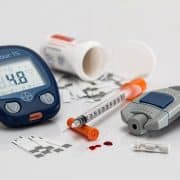The Six P’s Of Medicine: How Healthcare Technology Will Transform Access To Care And Enable Better Patient Outcomes
The digital revolution made an impact in almost every industry. In medicine, med-tech, virtual appointments and online data tracking are some advancements to name a few. preventive, predictive, participatory, personalized and pertinent. Jones explains with the rapid move toward telehealth during the coronavirus pandemic accelerating these shifts on a seismic scale, we have added a sixth “P” to the mix: platforms. Here’s how the six P’s of medicine work to provide better data, healthcare and patient outcomes, according to Jones:
Personalized – “Previously, medicine often had a cookie-cutter approach to health. Technology will allow patients and doctors to better understand each patient’s health by accumulating a volume of data that is unique to them, including blood pressure, average heart rates, blood sugars, oxygen saturation and more. Doctors will be able to view a patient’s overall health over the course of a year instead of a snapshot of a patient’s health in a single office visit.”
Precision – “We’ve come a long way from simple monitoring devices like blood pressure devices accessed at the local grocery or drugstore or glucose testing strips sold in local pharmacies. Many of today’s med-tech devices are just as accurate as monitoring devices used in hospitals and healthcare facilities.”
Predictive – “No one can predict the future. Though with the resources we have today, a patient can collect hundreds of blood pressure readings or multiple EKGs, it’s much easier to make informed conclusions about potential outcomes. Using this information, doctors can make informed predictions about where the patient’s blood sugar readings will be in a few months and adjust care and medication as needed.”
Preventive – “Having months and years of data about a patient’s health or a chronic condition is a powerful asset. Robust data will allow doctors to recommend interventions, change medications, or enlist other specialists if needed. An informed view of what could happen in the future could lead patients to make changes where they matter most: the present.”
Patient Participatory Medicine – “The advent of new devices, apps and platforms allows patients to participate much more in their own healthcare. The new model of healthcare fundamentally shifts from something static to a paradigm where each patient is a stakeholder in their care. Active investment in an individual’s health leads to better outcomes across the board.”
Platform – “Health monitoring technologies add a sixth “P” by combining robust data into a platform. While devices like smartwatches and wearables have helped people participate in their own healthcare and fitness for years, apps are poised to help democratize access to health monitoring by enabling instant, global scale distribution to existing smartphones and data integration with clinical patient management protocols. Almost everyone is equipped with a smartphone, meaning the platform for some of these technologies is ubiquitous if the health monitoring technology is delivered via an app.”
Ultimately, Jones concludes, technology and platforms will allow patients to participate at the highest possible level in the management of their health.


